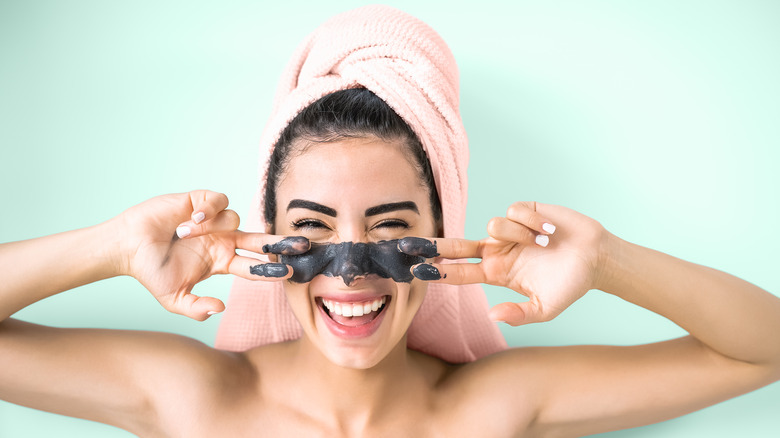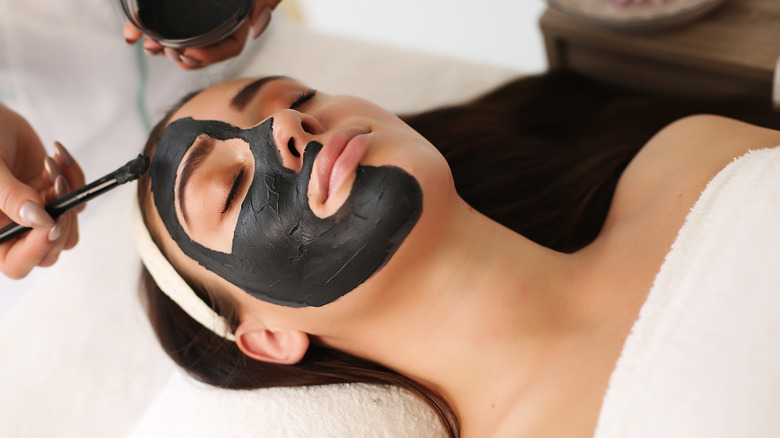Are Charcoal Products Good For Your Skin?
Activated charcoal has become a popular ingredient in beauty and skin care products in recent years. Also known as activated carbon, activated charcoal is a fine black powder that is made from exposing regular charcoal to high heat. According to Heathline, exposure to heat can turn charcoal into a highly absorbent substance that is believed to help trap and remove toxins from the body. Appearing in facial masks to cleansers, activated charcoal is used to help clear up acne and unclog pores.
Although there is little research on the effectiveness and benefits of using activated charcoal on your skin, anecdotal evidence suggests that it can help reduce breakouts, treat bug bites, remove dirt, oil, and bacteria, clear up impurities, and reduce redness and swelling. While activated charcoal is generally considered safe and suitable for all skin types, it can potentially cause dryness, redness, and irritation if used too often.
Does activated charcoal work?
The potential benefits of using activated charcoal are largely based on anecdotal evidence. Further research is still needed to determine whether or not the ingredient actually can improve the overall quality of your skin. According to experts at Byrdie, it's still unclear if activated charcoal can really help get rid of acne or remove impurities from your skin. In fact, it might be the other ingredients in activated charcoal products that are responsible for these potential benefits.
"These charcoal cleansers or masks are coupled with known acne-fighting ingredients, such as alpha-hydroxy acids, and beta-hydroxy acids, like salicylic acid, which is a lipophilic (oil-loving) ingredient used to remove sebum from pores, kaolin, which is known to bind sebum (oil), and/or fruit extracts," Dr. Melissa Kanchanapoomi Levin, a board-certified dermatologist and founder of Entière Dermatology, told Byrdie. That's why activated charcoal can't yet be touted as a proven acne treatment or skin detoxifier.


